Spinach, oxalates and kidney stones
The subject of spinach, oxalates and kidney stones has confused all of us in the healing professions. Fortunately researchers have now vindicated the instincts of most folk that dark green leafy vegetables are supremely good for us; despite being labelled for their so-called antinutrients.
Oxalate-rich foods are not the cause of kidney stones; nor do they bind significant amounts of calcium and other minerals in those enjoying a wide spectrum of nutritious meals. If they did all vegetarians would be suffering from osteoporosis and iron deficiency anaemia; quite the opposite is true.
Having said that, vegans in particular who do not have a long family tradition of balancing legumes and seeds are more prone to hip fractures.
"Healthy Controls and Stone Forming participants did not significantly differ in their estimated dietary intake of oxalate[1]."
Kidney stones
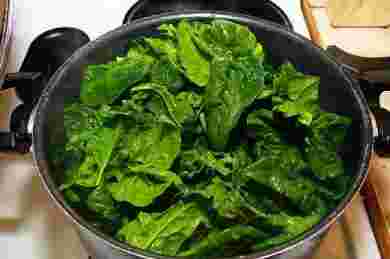 Fresh spinach
Fresh spinach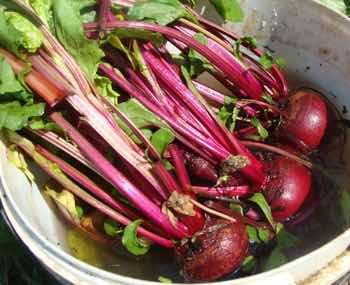 Young beets
Young beets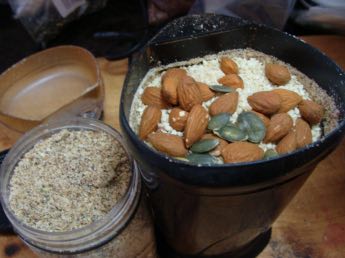 Almonds and seeds
Almonds and seedsLong the advice has been that those with a tendency to form kidney stones should avoid high-oxalate foods. That meant no spinach, beets or almonds; neither should those suffering from the affliction eat legumes, cereal grains or potatoes.
The theory was that on being excreted from the body, oxalates bind with calcium to form kidney stones; clearly it's a false notion.
Avocados, berries and citrus too are high in oxalates; in short, in many good foods.
Roughly one in ten people have a tendency to form kidney stones; that advice meant that they should avoid all these good foods that have such strong research backing. They are rich in the fibre that supports the microbiome too.
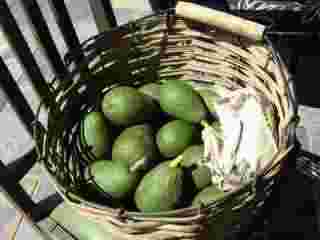
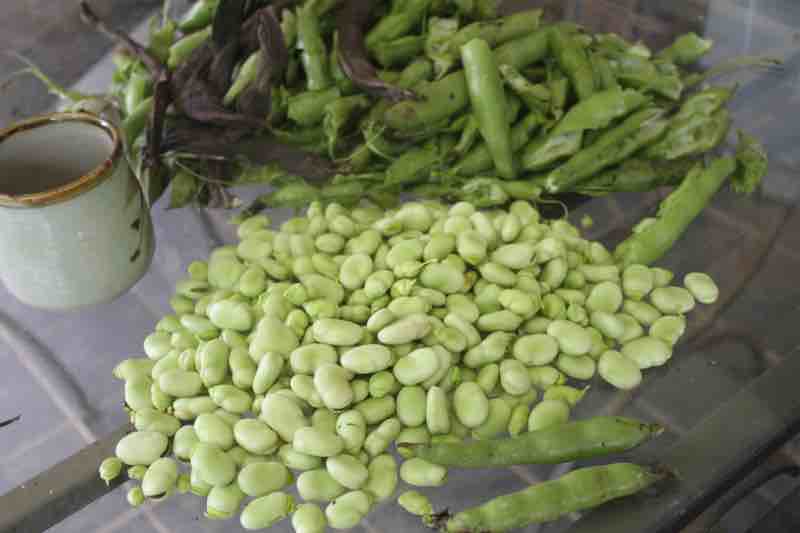
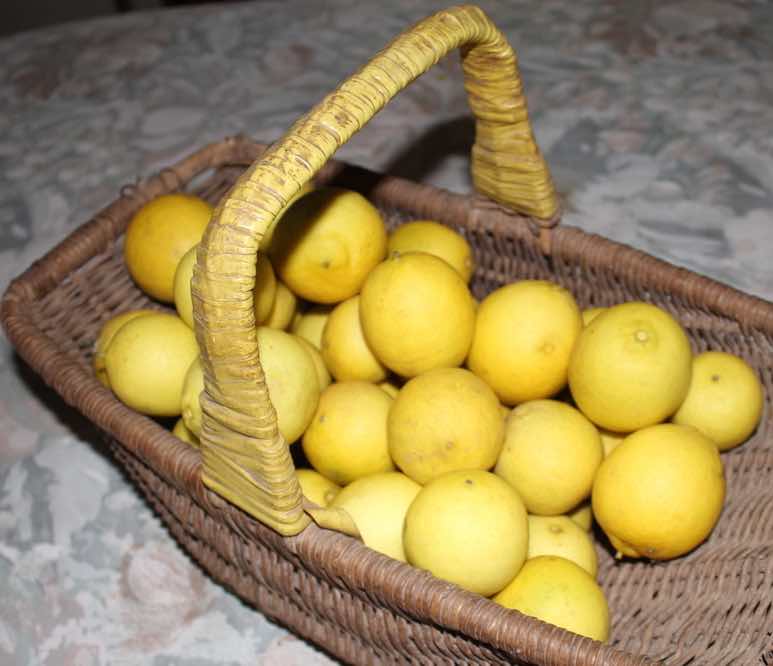
Medical advice was that one in ten people enjoying typical grocery store meals should not eat any of these excellent but rich in oxalate foods; or at least only in small quantities.
Urobiome
The happy tum contains an astonishing two kilogrammes of friendly bugs; most commonly known are bacteria, viruses and yeast cells but there are other creatures with strange names like archaea.
They form colonies in the colon, urinary tract (termed the "urobiome") and armpit too, for example. Now scientists have established that "stone formers" have a serious imbalance; they have large numbers of inflammation-associated bacteria[1].
"There is strong evidence that the urinary tract is not sterile, with naturally occurring bacterial communities present even in individuals without urological conditions."
- Cleveland Clinic researchers reporting in the journal Nature Communications
Friendly bacteria inhibit oxalate uptake
Also "Stone Formers" were low in friendly bacteria like F. prausnitzii that feed on dietary resistant starch, forming short chain fatty acids; they enhance the so-called tight junctions in the colon inhibiting excess oxalate uptake.
They found that Stone Formers harboured a gut with a microbiome containing less diversity; and were notably low in the whole phylum Bacillota and the health-associated Prausnitzii.
Other researchers found that a strain of E. coli too was associated with stone formation.
"Both qualitatively and quantitatively, the gut microbiome was strikingly different between Healthy Controls and Stone Forming cohorts."
On the other hand they found that Lactobacillus crispatus was uroprotective.
Excessive antibiotic use shifts the balance from friendly Lactobacillus towards stone-promoting E coli.
Urinary system microbiome
The urinary system of healthy individuals has now been clearly shown to have a microbiome of its own. Escherichia coli and Lactobacillus jensenii were particularly abundant in Stone Formers.
Vitamin B6
Pyridoxine (B6) is required in over 140 biochemical reactions in our bodies, including the detoxification of glyoxylate to an important proteogenic amino acid.
It's called glycine.
- Proteogenic enzymes create amino acids.
- Proteolytic enzymes break down amino acids.
The typical grocery store diet is deficient in B6. Three factors shift the microbiome to a predominantly proteolytic state, increasing inflammation and promoting kidney crystal deposition[2].
- It is high in animal amino acids
- Refined carbs
- Low in fruit and vegetable consumption
A deficiency of dietary vitamin B6 leads to an increase in oxalate excretion by the kidneys.
The material expressed on this page is gleaned from the nutritional and environmental literature; it is clearly referenced. A plain distinction is made between the author's opinion and that which is scientifically proven. When in doubt consult your health professional.
To suggest a correction or clarification, write to Dr Bernard Preston here. Contact.
"A deficiency of pyridoxine and subsequent reduction in AGT activity can lead to increased urinary oxalate excretion[1]."
AGT = the enzyme alanine-glycoxylate aminotransferase
Paradoxically by recommending that Stone Formers avoid whole grains, legumes and potatoes because of their oxalate content, doctors were actually worsening the situation; those are excellent sources of vitamin B6.
B12 and butyrate
Urinary samples from Stone Former were also significantly depleted relative to Healthy Controls in vitamin B12 and butyrate biosynthesis.
Butyrate is one of the short-chain fatty acids formed in the gut of those with a happy tum; a diverse and plentiful microbiome along with sufficient dietary fibre for them to feed on.
"Hubs of folate, riboflavin and coenzyme A biosynthesis were absent in Stone Formers."
Clearly the happy tum contains many bacteria that synthesise different vitamins.
Antibiotics
There is a strong correlation between oral antibiotics and kidney stones; more than double the risk especially in children[3].
That could be from prescription medication or from our food; animals in feedlots and cages fed daily with anti-microbials.
Take home
The take-home from this profound study of spinach, oxalates and kidney stones is manifold.
- Eating dark-green leafy vegetables like spinach which are high in oxylates is not the cause of kidney stones.
- Stone Formers have a diseased population of the microbiomes in both the gut and the urinary system. In particular they are too high in E. Coli and deficient in F. prausnitzii.
- Stone Formers lack a diverse array of friendly bugs in their intestines. This situation is aggravated by taking supplementary probiotics containing just a few species.
- Consuming foods rich in vitamin B6[5] contributes to the support of the bacteria that protect the body against kidney stones.
- Consuming probiotic foods helps to restore harmony to the alimentary canal and the urinary system.
Kefir
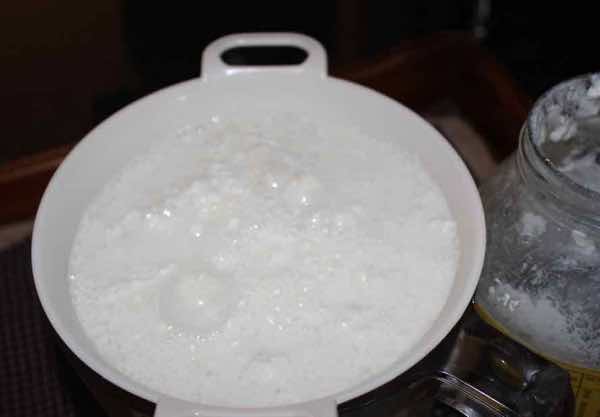
Generalised health and in this instance the wellness of the urinary system is utterly dependent on a diverse and plentiful array of friendly bacteria and other species in the gut.
Our experience is that kefir is the simplest probiotic to make in the home environment. Those struggling with the issues of spinach, oxalates and kidney stones should probably be preparing two or more fermented foods in their own kitchens. Avoid those in supplements which swamp the gut with only a few species, narrowing the diversity.
Unpasteurised homemade wines, beers and meads are other probiotics that will add to the diversity of the microbiome.
"For patients with Crohn's disease, there was a significant decrease in generalised inflammation after consuming kefir, whereas hemoglobin increased; and bloating scores were reduced[4]."
Bowel disease, kidney stones and natural probiotics like kefir have a profound connection.
Excessive phosphorus restriction
Kidney disease also makes it difficult for the body to excrete phosphorus; this leads to reduced conversion of vitamin D to its active form causing calcium to be leached from the bones, blood clots and ulcers to form.
Many foods contain the element but researchers recommend not trying to avoid all of them but rather those with inorganic phosphorous additives which are 100% absorbed.
In particular colas, beer and processed meat are fingered; cookies, biscuits and confections made with baking powder too.
Far less of the phosphorus in legumes and whole grains is digested and absorbed.
In short those suffering from kidney stones need to avoid ultra-processed foods.
Constipation and chronic kidney disease (CKD)
Constipation is frequently associated with Chronic Kidney Disease; and correlates with a more rapid decline in glomerular filtration.
Medication used for constipation in those suffering with CKD improved kidney function. It stimulated the bacteria in the colon to produce natural substances that improved renal mitochondrial activity.
One wishes that researchers would continue their investigations on how increased dietary fibre and a probiotic such as kefir might influence diseased kidney function.
- Multi-site microbiota alteration is a hallmark of kidney stone formation
- Vitamins as regulators of calcium-containing kidney stones; new perspectives on the role of the gut microbiome
- Oral Antibiotic Exposure and Kidney Stone Disease
- Effect of administering kefir on the changes in fecal microbiota and symptoms of inflammatory bowel disease
- Vitamin B6 food
When browsing use right click and "Open Link in New Tab" or you may get a bad gateway signal.
Newsletter
Our newsletter is entitled "create a cyan zone" at your home, preserving both yourself and Mother Earth for future generations; and the family too, of course. We promise not to spam you with daily emails promoting various products. You may get an occasional nudge to buy one of my books.
Here are the back issues.
- Lifestyle and ideal body weight
- What are ultra-processed foods?
- Investing in long-term health
- Diseases from plastic exposure
- Intensive lifestyle management for obesity has limited value
- A world largely devoid of Parkinson's Disease
- The impact of friendly bacteria in the tum on the prevention of cancer
- There's a hole in the bucket
- Everyone is talking about weight loss drugs
- Pull the sweet tooth
- If you suffer from heartburn plant a susu
- Refined maize meal and stunting
- Should agriculture and industry get priority for water and electricity?
- Nature is calling
- Mill your own flour
- Bake your own sourdough bread
- Microplastics from our water
- Alternative types of water storage
- Wear your clothes out
- Comfort foods
- Create a bee-friendly environment
- Go to bed slightly hungry
- Keep bees
- Blue zone folk are religious
- Reduce plastic waste
- Family is important
- What can go in compost?
- Grow broad beans for longevity
- Harvest and store sunshine
- Blue zone exercise
- Harvest and store your rainwater
- Create a cyan zone at your home
Did you find this page interesting? How about forwarding it to a friendly book or food junkie? Better still, a social media tick would help.
Address:
56 Groenekloof Rd,
Hilton, KZN
South Africa
Website:
https://www.bernard-preston.com